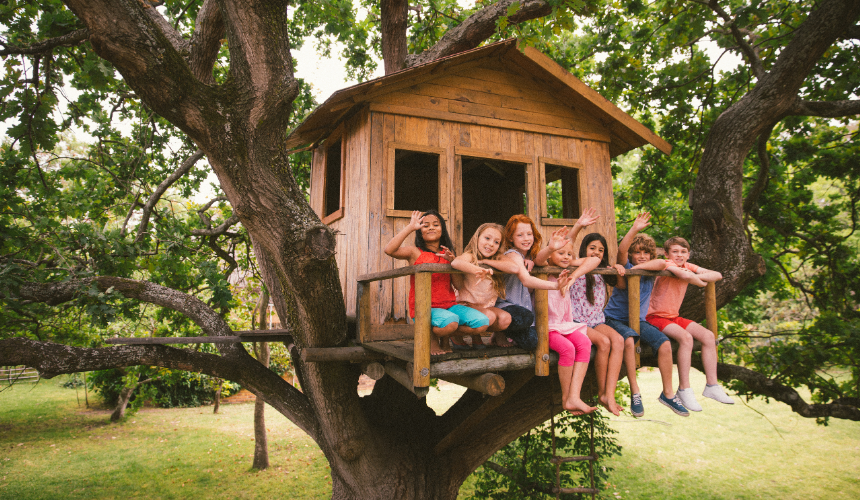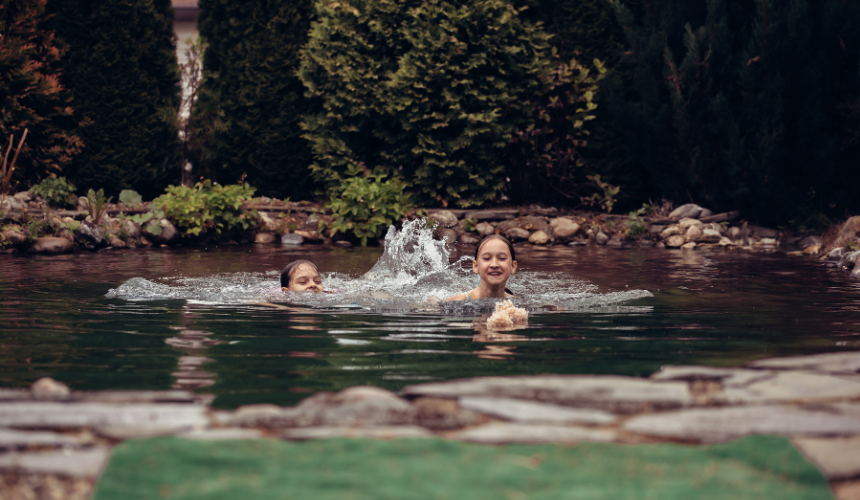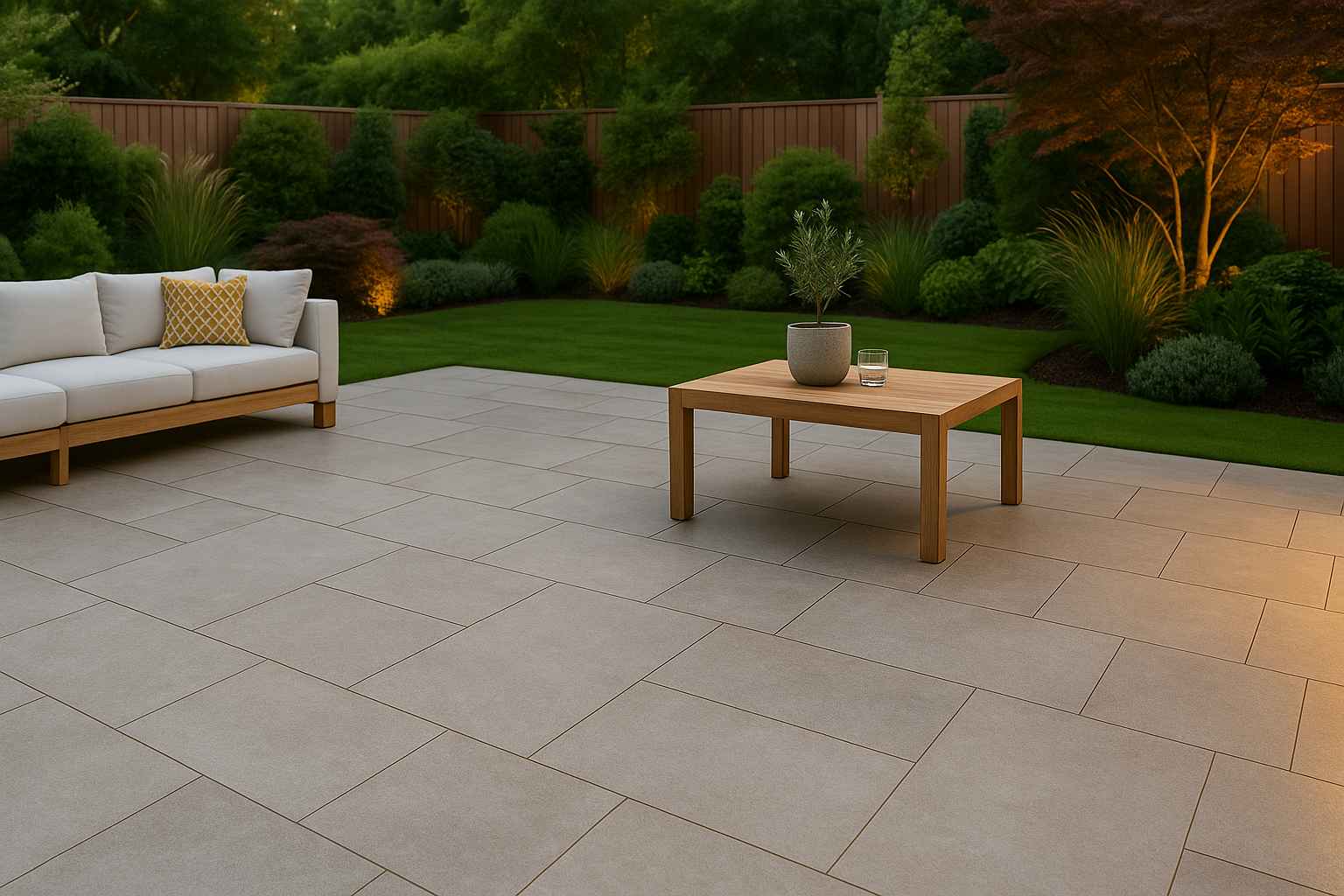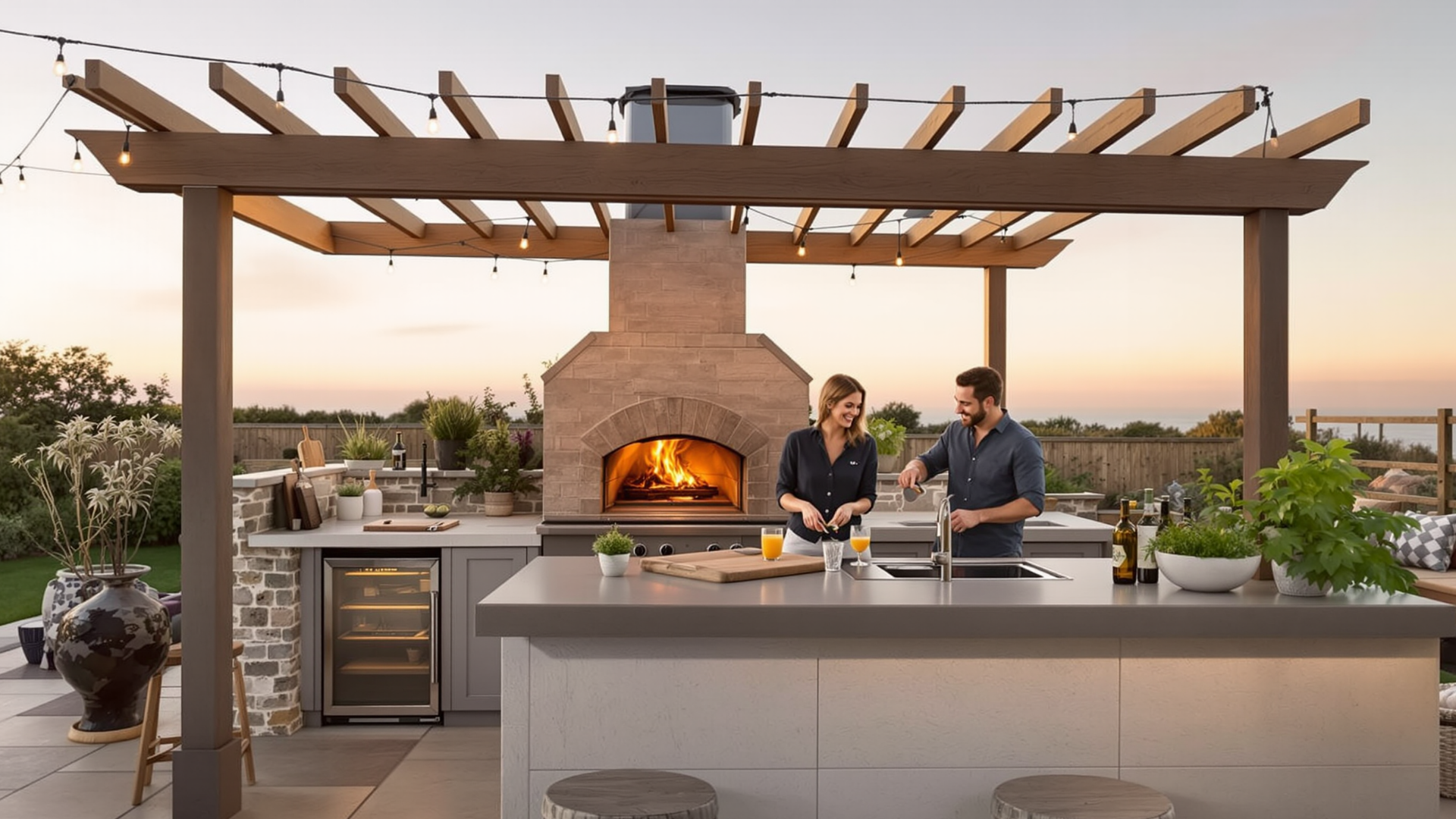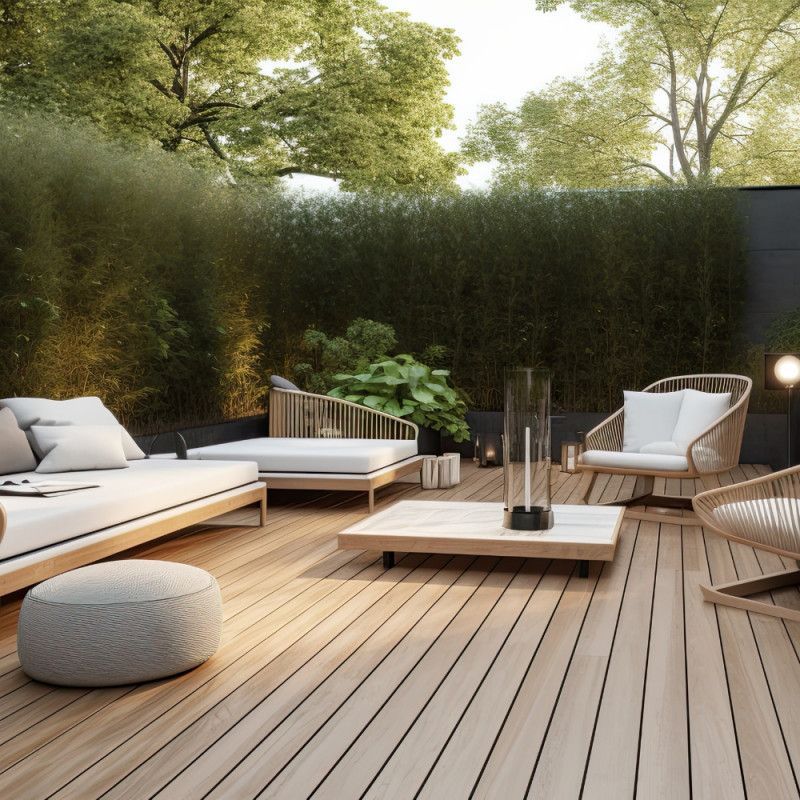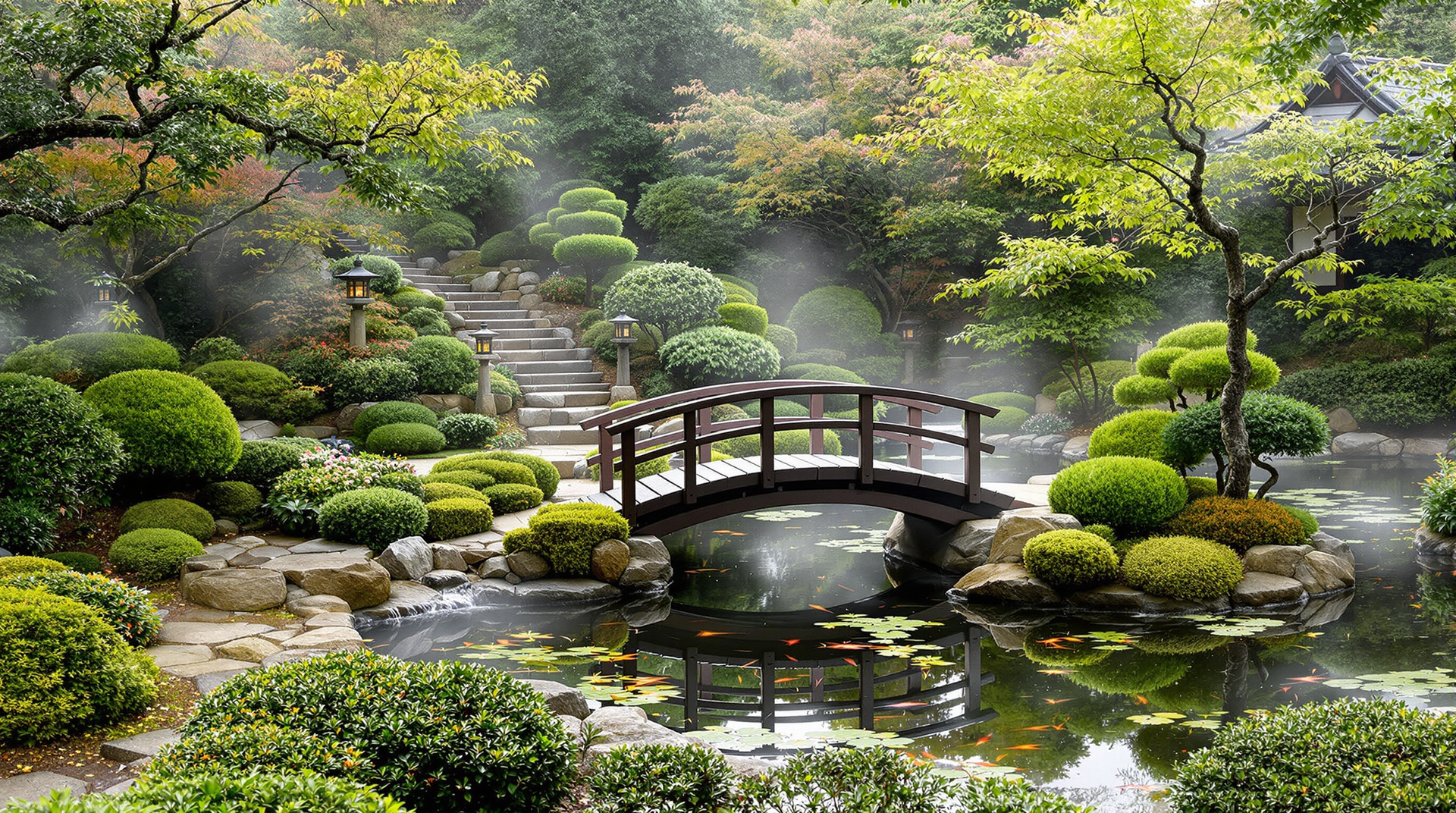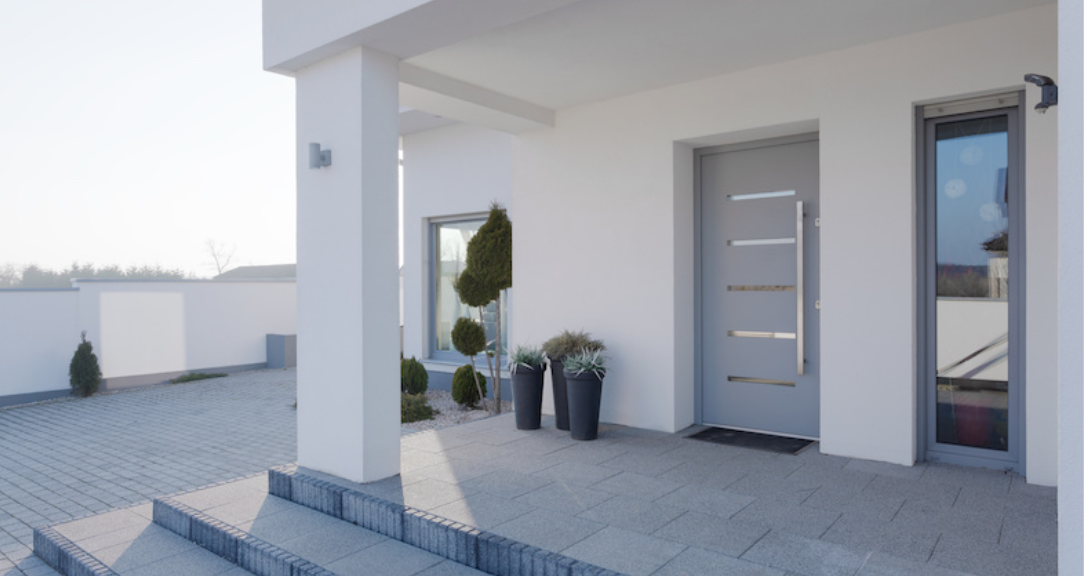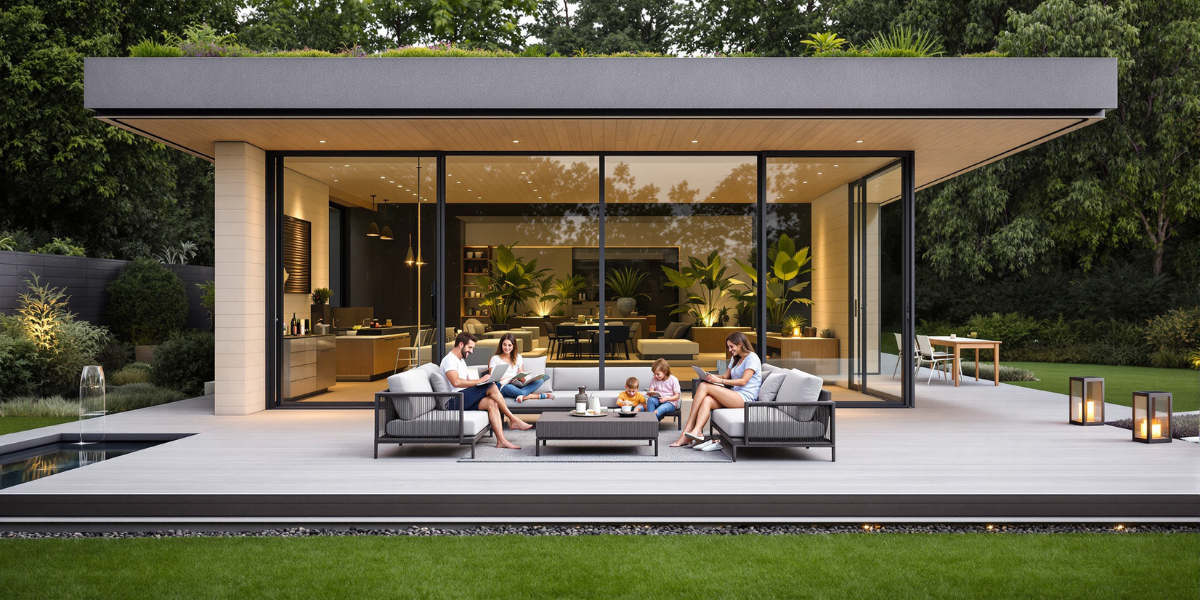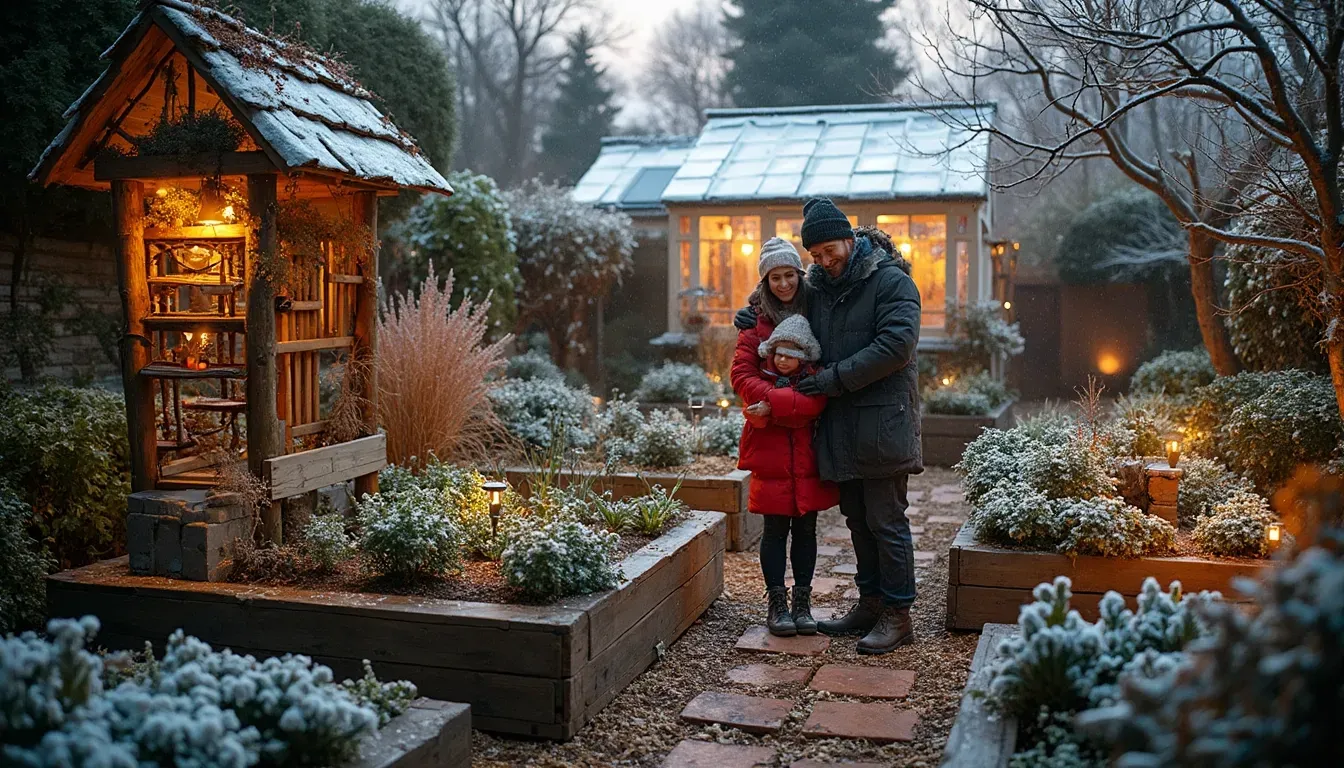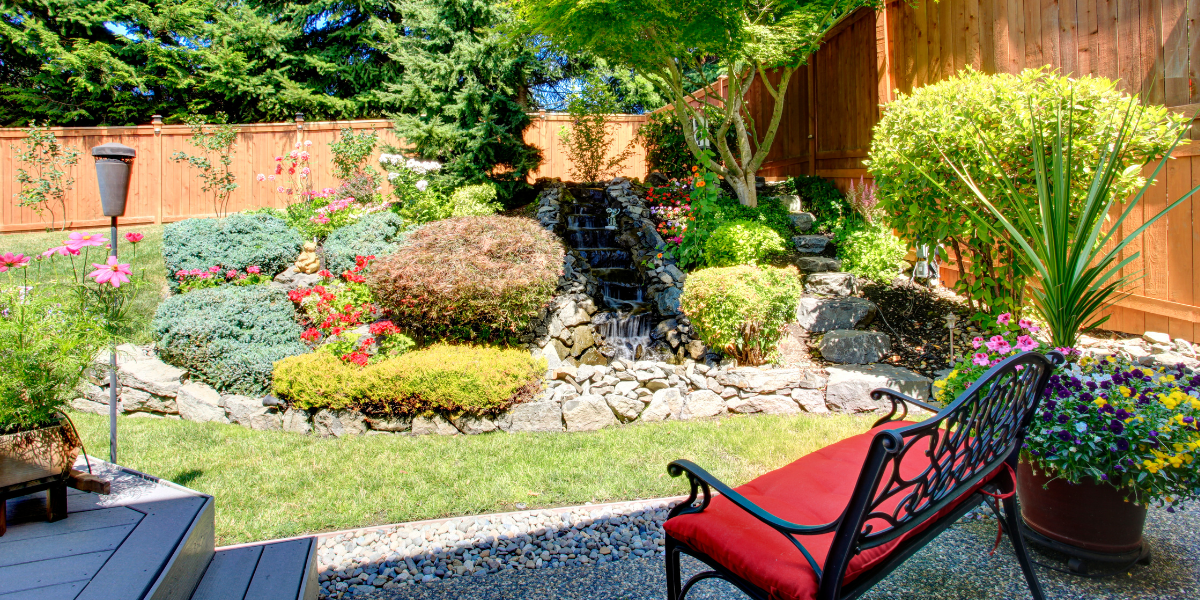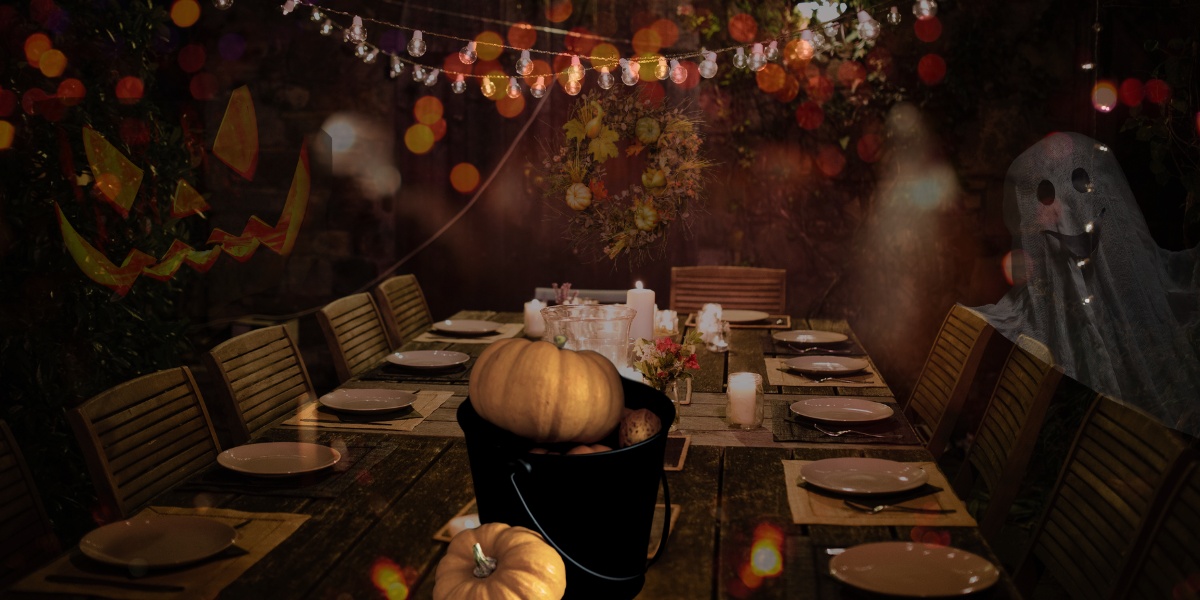6 Top Tips to Transform Your Garden Into a Year-round Child-friendly Wonderland
6 Top Tips to Transform Your Garden Into a Year-round Child-friendly Wonderland
Design a Garden That Brings Year-Round Joy for All Ages
Your garden isn't just a patch of grass and plants; it's a living space that can inspire kids of all ages, from toddlers to teenagers.
Whether you have little ones just starting to explore the world or older kids who need a space to unwind and learn, your garden can become a year-round haven for growth and adventure.
Picture a garden filled with fun zones and activity areas designed to spark curiosity and imagination. From raised beds for hands-on gardening lessons to treehouses and climbing frames for adventure, there's something for every age.
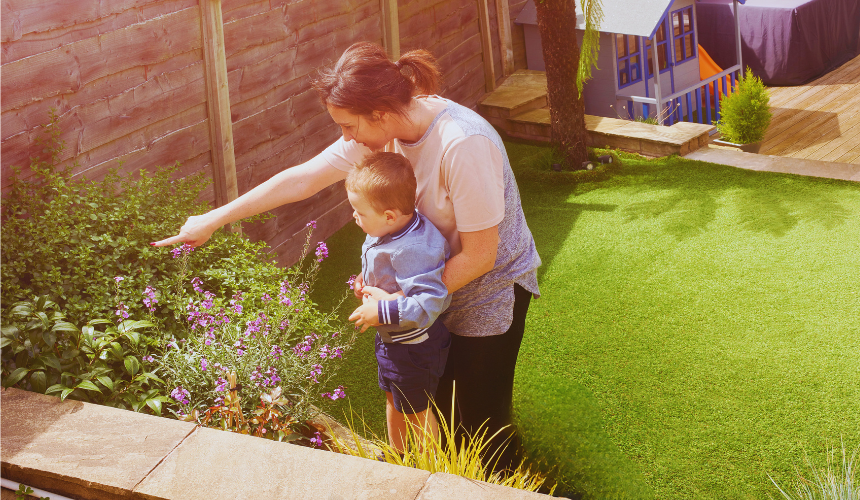
Soft surfaces ensure safety, while a vibrant mix of colours and textures—using wood, stone, and plants—makes the garden a sensory-rich environment. Your garden can be a place where kids learn, play, and develop skills while connecting with nature, no matter their age.
This post will explore the essential elements of creating a year-round, child-friendly garden. From safety features and engaging play areas to gardening activities that spark curiosity and responsibility, we'll cover everything you need to turn your outdoor space into a wonderland for children.
Whether you're a new parent, have a growing family, or are newlyweds planning for the future, this guide will help you rethink your garden's potential and show you how to make it a place your children will never want to leave. (Well, unless you really want them to!)
Are you ready to transform your garden into a safe, fun, and vibrant environment for your precious offspring?
Let's explore our 6 Top Tips to Transform Your Garden Into a Year-round Child-friendly Wonderland!
1. Safety First: Making Your Garden a Secure Space for Play
Creating a child-friendly garden begins with safety. It's easy to get excited about play areas and colourful plants, but without the proper groundwork, your garden could become a space full of hazards.
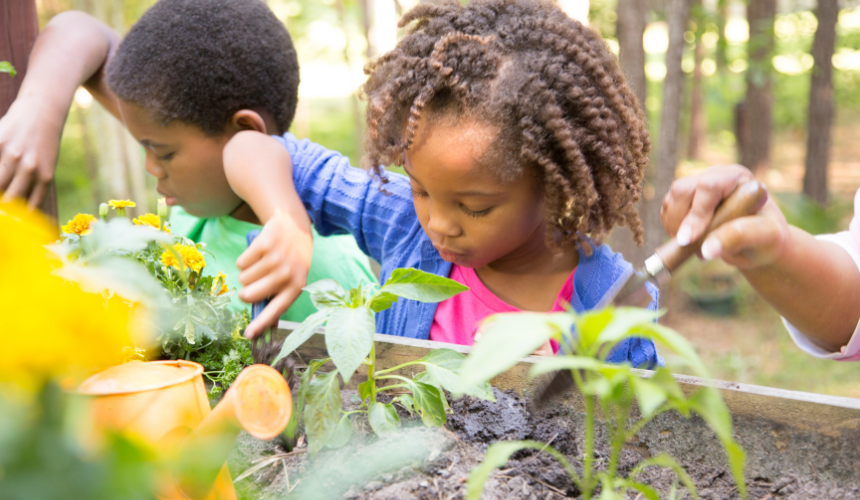
The key is to balance fun with practical safety measures, ensuring peace of mind for you and endless exploration for your kids.
- Fencing and Boundaries: As your children grow, so does their desire for independence. Ensure the garden has secure fencing to keep young explorers safe while allowing older children to enjoy freedom without you having to worry.
- Soft Ground Areas: For toddlers learning to walk and older kids running around, soft surfaces such as rubber mulch or grass are perfect for preventing injuries. Even for older kids likely to run, jump, and climb, having cushioned landings can make a difference.
- Raised Beds and Planters: Raised garden beds aren't just for adults. Teaching older children and teenagers about growing their own vegetables or flowers is an excellent way to build responsibility and encourage learning. Raised beds can be an interactive learning zone for kids of all ages.
- Smooth Pathways & Surfaces: First things first—trip hazards. Uneven paving, protruding roots, and loose gravel can lead to falls. Levelling your garden's surface or using soft materials like rubber tiles or bark mulch in play zones can reduce injuries while keeping the natural aesthetic intact.
- Sheltered Areas for All Seasons: A year-round garden needs protection from rain and harsh sun. Consider pergolas or waterproof shade sails to provide a secluded nook where kids can play in any weather. You'll get bonus points for making it a spot where parents can relax, too.
Tip: Remember, it's not just about preventing injuries; it's about creating a safe space. Children who feel secure are more likely to explore and engage with their surroundings.
2. Fun Play Areas: Unleashing Imagination and Energy
A child-friendly garden should spark the imagination, encouraging kids to invent games and explore their surroundings. But instead of a generic plastic playset, think creatively about turning your outdoor space into a mini adventure park.
As your children age, their needs in the garden will change. Here's how you can create versatile fun zones that grow with them:
- Natural Playgrounds: Think outside the box (or, instead, the plastic box). Use logs, boulders, and stumps to create obstacle courses. Install climbing walls on fences or create secret dens using willow tunnels or natural materials. Natural play areas are not only engaging, but they also encourage kids to interact with nature in a more meaningful way.
- Water Features: A minor water feature—a trickling stream, a shallow pond, or a bubbling fountain—can transform any garden. Children love water play, and it also offers sensory stimulation that can be both calming and exciting. Just make sure it's shallow and child-safe.
- Zones for Different Ages: Consider creating different zones for various age groups. Toddlers might love a sensory garden with colourful, scented flowers and soft grasses, while older kids might prefer a space to run, jump, and climb. The versatility of your garden design ensures that it grows with your children.
- Climbing Frames and Treehouses: Low climbing frames and miniature treehouses foster a sense of adventure for young children. These structures can evolve for teenagers into secluded hideouts or creative spaces for studying or hanging out.
- Raised Play Areas: Don't limit activities to the ground—install raised platforms or hammocks where older kids can retreat. These areas allow teenagers to have their own space while participating in family garden activities.
- Interactive Play Areas: Install DIY mud kitchens, water play zones, or nature-inspired obstacle courses for younger children. These spaces will grow into more complex play areas as your children age. Older kids may prefer places to engage in more physical activities, such as basketball hoops or even a small outdoor gym.
Tip: Use natural materials to stimulate creativity—think logs for balancing, stones for jumping, or leafy hideaways for secret games.
3. Learning and Growth: Hands-On Experiences for All Ages
A garden isn't just a place to play; it's an outdoor classroom that can provide hands-on learning experiences for children of all ages. From toddlers discovering how plants grow to teenagers exploring sustainability and wildlife, a garden offers countless growth opportunities—both in nature and knowledge.
By engaging with the garden, kids can develop skills beyond the classroom, from responsibility and patience to creativity and critical thinking. The garden becomes a space where curiosity flourishes, offering valuable life lessons that stay with them as they grow.
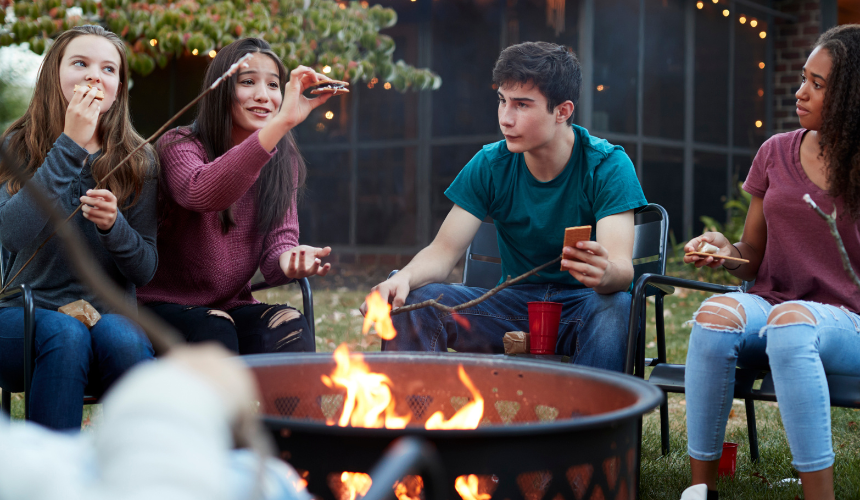
Whether your kids are planting their first seeds or managing a wildlife-friendly zone, the garden is where they can learn, experiment, and connect with nature in meaningful ways.
- Gardening Lessons: For younger children, start with easy, fast-growing plants like sunflowers or strawberries. Older kids and teens can get more involved in the process, learning about soil, composting, and sustainability.
- Wildlife Gardens: A wildlife-friendly garden is a fantastic learning tool. Install bird feeders, bug hotels, and bee-friendly plants to encourage biodiversity. Younger kids will love watching the birds and bugs, while teenagers can take more responsibility by maintaining these wildlife zones.
- Outdoor Science: Encourage older children to conduct science experiments in the garden. Compost bins, rainwater collection systems, and solar-powered lights are great starting points for teaching sustainability and environmental responsibility. They can learn about ecosystems, weather patterns, and conservation—all from your back garden.
- Fire Pits and Social Activities: As children grow, social skills become essential to their development, and your garden can play a vital role. A fire pit is perfect for fostering communication and teamwork through fun activities like roasting marshmallows or making s'mores. These gatherings create storytelling, laughter, and bonding opportunities, providing kids and teenagers with a safe space to relax and connect with friends. From sharing stories to cooperating on a group task, social activities around a fire pit help develop key life skills while creating lasting memories.
Tip: Incorporate outdoor games like charades, scavenger hunts, or team challenges into your garden gatherings. These activities encourage teamwork, problem-solving, and creativity, making them ideal for kids and teenagers. A simple scavenger hunt around the garden can teach them about nature while keeping them engaged and entertained.
4. Cost Considerations: Affordable Transformations for Families
Whether you're catering to toddlers or teens, creating a garden that grows with your family doesn't need to cost a fortune. With some creativity, you can transform your outdoor space into a versatile haven for all ages.
Simple DIY projects, upcycling materials, and focusing on natural elements like wood and stone can cut costs while keeping the garden both functional and fun. The key is investing in adaptable features that evolve as your kids grow, ensuring that your garden remains a cherished space for years without significant expenses.
You don't need to break the bank to create a safe and fun garden. There are plenty of ways to make small changes that significantly impact without a hefty price tag.
- DIY vs. Ready-Made: Pre-built playsets can be expensive, but tapping into the forgotten skills of your local carpenter or taking on a DIY project can offer more affordable and personalised solutions. With reclaimed wooden pallets and some creativity, a carpenter could craft a bespoke playhouse that reflects your family’s style and needs. If time is short, budget-friendly kits from garden centres are a quick alternative, but there’s nothing quite like the unique, handcrafted touch a local expert can bring to your garden.
- Modular Elements: Invest in modular pieces like raised beds, portable planters, or foldable play structures that can be moved or repurposed as your children grow.
- Natural Features: Use natural elements like logs, stones, and boulders to create obstacle courses, balance beams, and climbing structures. They are cost-effective and blend seamlessly with the garden's natural aesthetic.
- Upcycling Materials: Upcycling is your best friend regarding budget gardening. Old tyres can be transformed into colourful climbing structures, while a few unused pots can become mini ponds. Get creative, and you'll find plenty of affordable, child-friendly options.
- Natural Swimming Pools: Natural swimming pools offer a cost-effective, chemical-free alternative to traditional pools. They use plants and gravel to filter the water, reducing both maintenance costs and long-term expenses. Healthier for kids and easier to maintain, these pools also blend beautifully into the landscape, creating a tranquil space for year-round family fun. To save even more, consider using rainwater collection systems to help fill and maintain your natural pool. This eco-friendly method reduces water costs and makes your garden even more sustainable, cutting down on utility bills while keeping the pool full of fresh water.
Tip: Start small. Focus on one or two critical areas of the garden first, such as a safe play zone or a veggie patch, and build up from there.
5. The Power of Colour and Texture: Engaging the Senses
A garden isn't just a playground; it's a visual experience. Colour and style can significantly impact how a space feels, and they play a massive role in creating an environment that's engaging for children and appealing for young adults.

Use bold colours and varied textures to create a space that is not only fun but also enhances sensory development:
- Bright Colours: Younger children respond to bright, bold colours, so incorporate vibrant plants, painted garden furniture, and colourful play equipment. For teenagers, consider a more refined colour palette with subtle but impactful pops of colour to suit their evolving tastes.
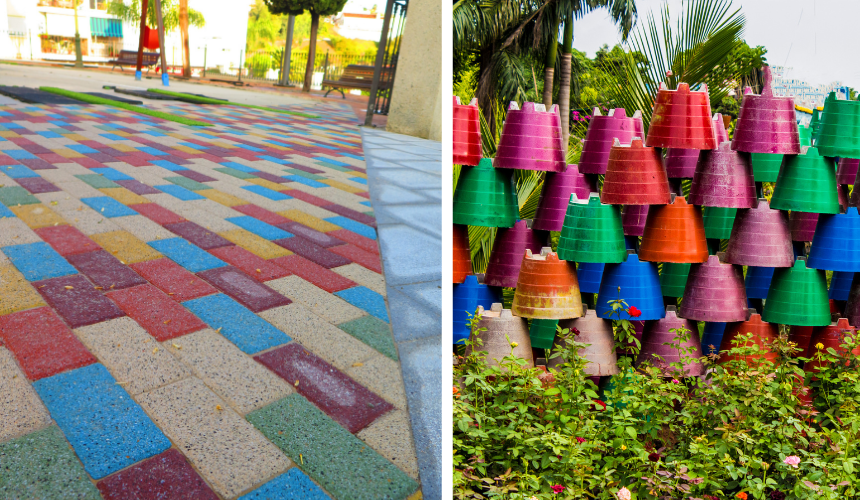
- Textures: Incorporate a range of textures, from soft grass underfoot to rough tree bark for climbing. Smooth stones, crunchy gravel pathways, and flowing water features add variety, making the garden more engaging for children and teenagers alike.
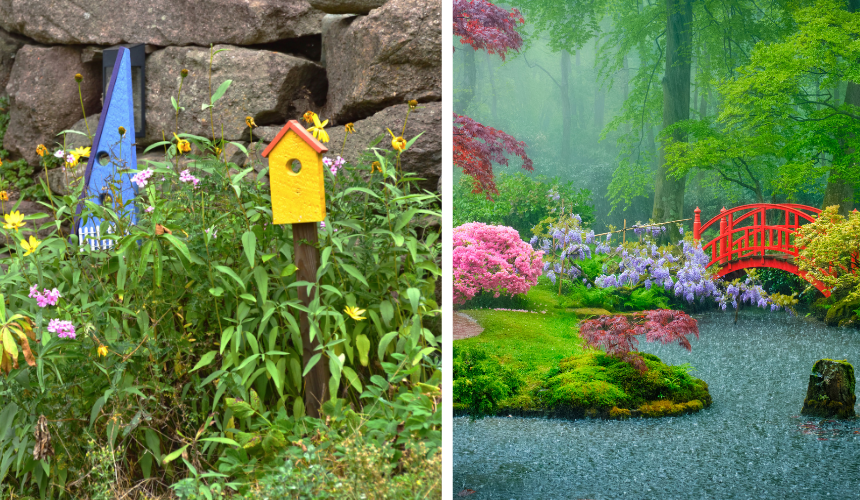
- Thematic Gardens: Create a themed garden, whether a fairy garden filled with miniature houses, a pirate-themed play zone, or a woodland retreat with hidden paths. Themed gardens provide a strong focal point and make playtime more imaginative.
Tip: Involve your children in picking the colour schemes for their play areas or garden features—it adds a personal touch they'll love.
6. Added Value: A Garden That Grows with Your Family
Beyond the immediate benefits of a child-friendly garden, the long-term value can be enormous. These changes will not only improve your family's quality of life but can also increase the resale value of your property.
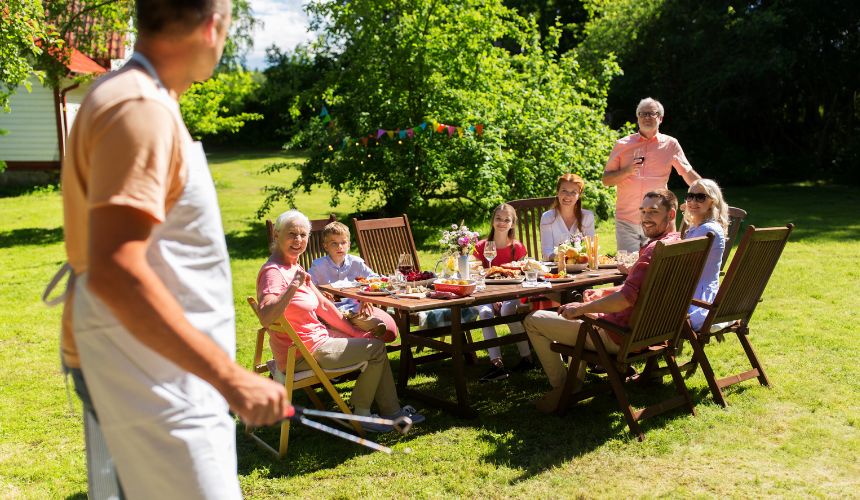
Designing a garden for kids of all ages adds long-term value to your family life and property. Here’s why:
- Flexible Layouts: A well-planned garden can evolve with your children’s needs. What starts as a toddler’s play space can be adapted into a teenage hangout spot. This flexibility ensures your garden remains a cherished family space for years.
- Grow-Your-Own:
Introducing a vegetable patch into your garden adds practical value and creates a space for children to learn and grow. They develop responsibility and healthy habits as they plant, nurture, and harvest their own produce. The garden becomes a place for shared family activities that evolve over time, ensuring your outdoor space grows alongside your family's needs and experiences.
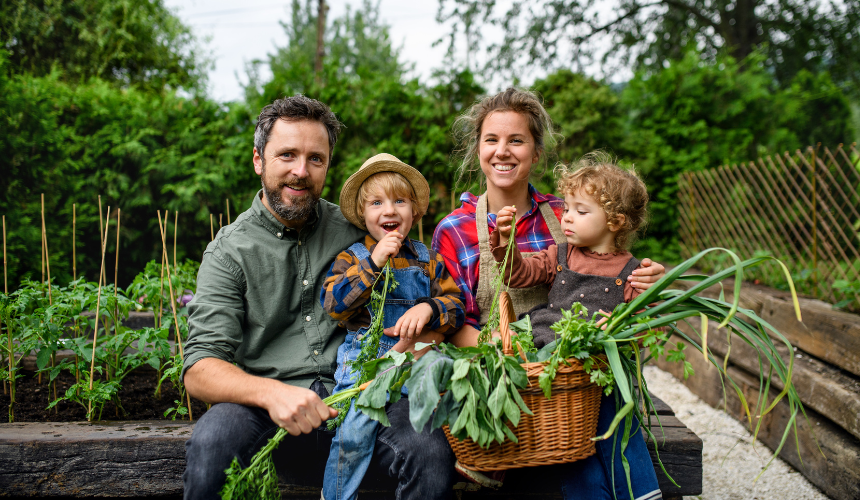
- Increasing Property Value: A family-friendly, well-designed garden is a significant selling point for potential buyers. Homes with versatile outdoor spaces often command higher prices, mainly if the garden caters to a wide age range.
- Creating Memories: Beyond financial gains, the value of your garden lies in the memories it helps create. From teaching your kids to grow their first plants to hosting family BBQs, it’s a space that grows with you as a family. Creating a space where your family can bond, learn, and grow together is priceless. A child-friendly garden is an investment in your family's happiness and well-being.
Tip: Think of your garden as a long-term project. Each improvement you make adds value to your home and enriches your family life.
Tired of Waiting for Weekend DIY Dad?
Get a Family-Friendly Garden Done Quicker, Easier
You’ve seen how a garden can evolve with your children—from playful zones to vibrant learning spaces—but let’s be honest, waiting for Dad to get it done could take a while!
Imagine a garden where your little ones can play safely, exciting zones that spark creativity, and a space that evolves as your family grows. Now, picture bringing all this to life faster, without the stress, and for less than you might expect.
Our team of professionals can make it happen—and the best part? We’ll show you a 3D animated video of your future garden that will have the entire family buzzing with excitement.
Ready to kickstart your ultimate garden transformation to a year-round child-friendly wonderland?
Call us at 01202 022246,
and let’s craft a space your family will love for years to come
—quicker, easier, and more exciting than you imagined.

Your garden evolution can begin today!
You can also
complete the form below for a call-back with more information.
The form below receives a priority response for Greenway Digest readers.
Enter your details below and we'll call you right back!
Contact Greenway
Please rest assured, your details will not be shared with any third parties.
Greenway will only contact you regarding your inquiry and other Greenway-related information.


